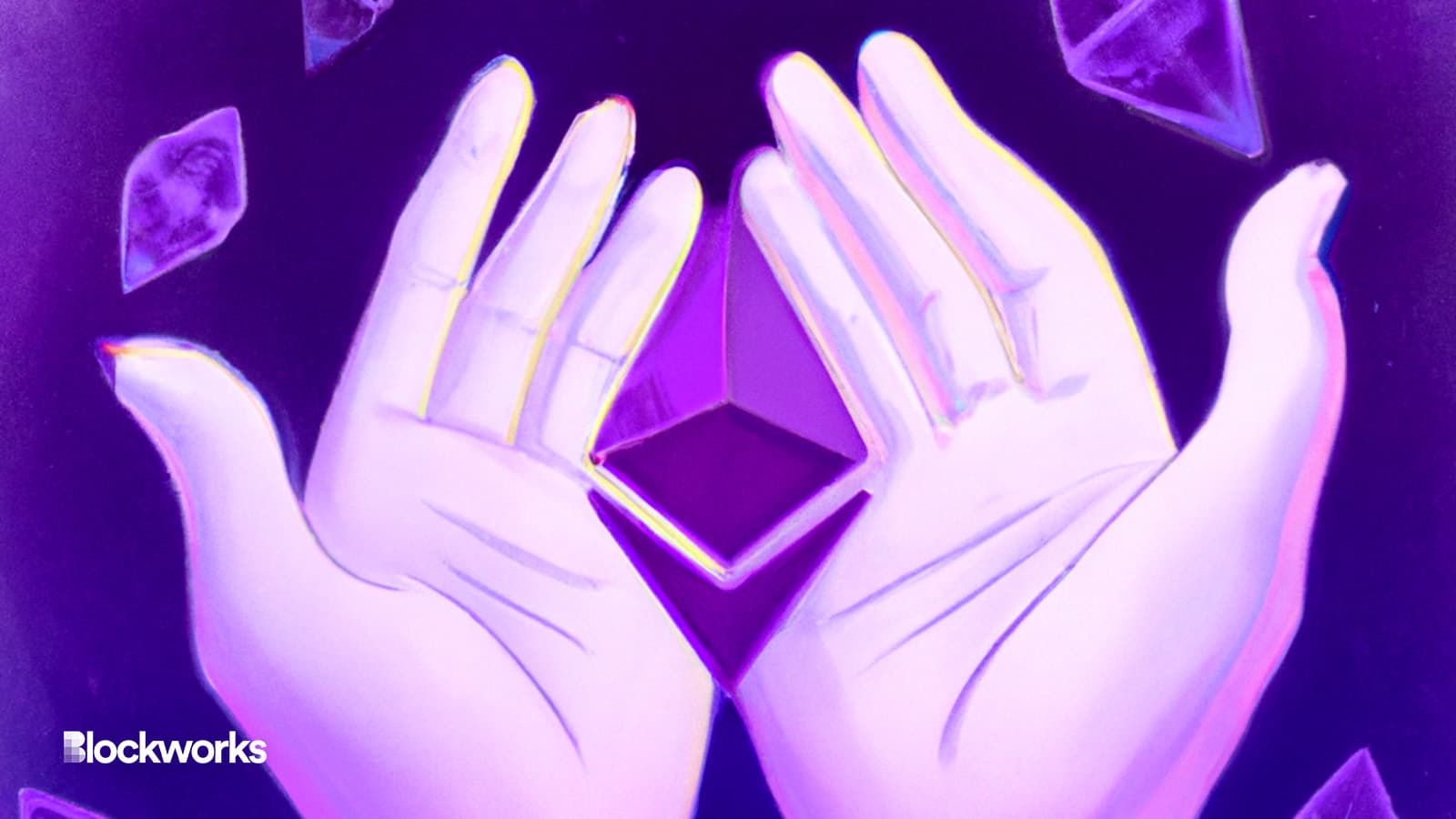MetaMask Mobile Users Can Now Buy ETH Using PayPal
The new feature, available only to select US customers for now, lets Web3 users go from cash to ether via PayPal for a 1% fee

DALL-E modified by Blockworks
ConsenSys announced a new on-ramp to Ethereum via a feature to integrate PayPal purchases of ether on MetaMask’s mobile app, with a browser integration targeting the first quarter of 2023.
The mobile MetaMask app wallet developer plans to enable a select number of US users to fund their wallets with ether (ETH) by transferring ETH they hold on PayPal or by purchasing the cryptoasset using Paypal-linked bank accounts.
Eligibility will be increased to all US customers “in the coming weeks” ConsenSys said in a blog post.
PayPal has allowed users to buy, sell and hold crypto since 2020 and to “check out with crypto” for online purchases using bitcoin, ether, litecoin and bitcoin cash since 2020.
Last week, PayPal competitor Stripe launched its own fiat-to-crypto on-ramp, allowing customers to exchange dollars for cryptocurrencies.
Existing on-ramps for users who tap the buy button on the MetaMask app include instant bank transfer, Apple Pay, or a debit or credit card. Soon PayPal will be an additional option. MetaMask’s 1% service fee is applied to purchases, according to the company.
A Web3 company founder Adam Hollander tweeted that this PayPal’s new feature “knocks down a meaningful barrier to entry for NFTs.”
ConsenSys recently came under fire for updates to its privacy policy in connection with two of its core products — MetaMask and Infura — when the company said last month that collecting and storing users’ wallet and IP addresses was standard, alarming many of its customers.
The company later backtracked, stating that it will only hold user wallet and IP addresses for one week after a transaction is made.
Regarding the new PayPal partnership, MetaMask’s product manager Lorenzo Santos told Blockworks that “MetaMask never collects or processes KYC [know-your-customer] data or payment details.” He views the integration as an opportunity to onboard hundreds of millions of users to Web3 who have already entrusted their payment details to PayPal.
While the Web3 and crypto community has been hesitant to adopt KYC processes on privacy grounds, many money services businesses, including US-regulated centralized exchanges such as Coinbase, require it.
Get the news in your inbox. Explore Blockworks newsletters:
- The Breakdown: Decoding crypto and the markets. Daily.
- 0xResearch: Alpha in your inbox. Think like an analyst.






